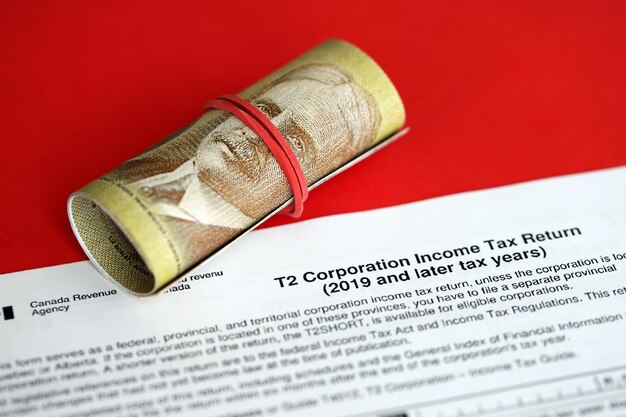Can the IRS Forgive Tax Debt After 10 Years? Here's What You Need to Know
Tax debt can feel daunting, especially when you sense no light at the end of the tunnel. A faint glimmer of hope for many is the tantalizing possibility that the IRS might forgive tax debt after 10 years. But is this true, and what does the process entail? Let’s explore the ins and outs of this topic to provide clarity and practical guidance.
Understanding the IRS Statute of Limitations
One central concept in tax debt discussions is the IRS statute of limitations. This rule limits the time period during which the IRS can collect on an outstanding tax debt. Generally, this period is 10 years from the date the tax was assessed. This doesn't mean the debt is automatically forgiven, but there are specific criteria and processes involved.
Determining the Start Date
The starting point for this 10-year countdown begins when the IRS assesses the tax. This typically occurs when you file your tax return. If you don’t file, the IRS might file a substitute return on your behalf, and this becomes your assessment date.
Factors Affecting the 10-Year Period
Several circumstances can pause or extend the 10-year statute of limitations. Understanding these can help you manage your tax situation effectively:
1. Agreements with the IRS
If you enter into an installment agreement, it can sometimes pause the collection clock. Similarly, applying for an Offer in Compromise or filing for bankruptcy might impact the timeline, either pausing or extending it.
2. Legal Proceedings
Actions such as filing a lawsuit against the IRS or undergoing an audit might also extend the collection period. These legal interventions can halt the clock during their duration.
3. Leaving the Country
Moving or staying outside the U.S. for an extended time can affect the statute's duration, potentially suspending it while you're away.
What Happens After 10 Years?
The notion that tax debt simply vanishes after 10 years is a simplification. While the IRS loses its legal ability to collect from you after this period, the process can be more complex and depends on full compliance with tax laws.
The "CSED" Concept
The Collection Statute Expiration Date (CSED) is the IRS's formal term for when their ability to legally pursue tax collection expires. After this date, the IRS is generally unable to take actions such as garnishing wages or seizing assets for that particular debt.
Strategies for Approaching the IRS Statute of Limitations
If you're nearing the CSED, there are strategies that might benefit you, though they require careful consideration and possibly, legal or professional tax advice.
1. Track Your CSED
Ensure you know exactly when the statute period began and project when it is set to expire. This aids in strategic planning and decision-making regarding your tax debt.
2. Avoid Extending the Statute Unnecessarily
Evaluate offers or agreements that might extend the period of collectibility wisely. Only enter into agreements like installment plans if they genuinely aid your financial situation.
3. Communicate with the IRS
Keeping open lines of communication with the IRS, even when the CSED approaches, demonstrates good faith and might result in more favorable terms or settlements.
Exploring Resolution Options
While waiting for the statute of limitations to expire might seem tempting, it’s often not the most practical pathway for everyone. Let’s review other options available:
Installment Agreements
These plans spread your debt into manageable monthly payments. They're legally-binding and trustworthy arrangements but can extend your statute of limitations in some cases.
Offer in Compromise
An IRS program that allows you to settle your tax debt for less than you owe, if you qualify. It’s a rigorous process and requires showing that you cannot pay the full amount.
Currently Not Collectible Status
If you're unable to make payments due to financial hardship, the IRS might place your account in a hold status, pausing active collection efforts but not forgiving the debt.
Summarizing Key Points and Tips: 📝
- Track the CSED: Knowing when your statute expires is crucial for planning.
- Evaluate Agreements: Be mindful of entering into plans that extend the statute.
- Stay Informed: Keep communication lines open with the IRS.
- Consider Alternatives: Assess your options like Offers in Compromise.
Walking the path of tax debt resolution is intricate, demanding patience and strategic thinking. Understanding the role time plays, along with available options, positions you better to manage and ideally, overcome tax debt challenges. While the 10-year "forgiveness" may not be an outright cancellation, it's an essential part of navigating tax liabilities, potentially leading to relief.

Related Topics
- Are Irs Tax Debts Considered Consumer Debts When Filing Chapter7
- Can Bankruptcy Clear Tax Debt
- Can Debt Collectors Take Your Tax Refund
- Can Debt Collectors Take Your Tax Return
- Can Tax Debt Be Discharged
- Can Tax Debt Be Discharged In Bankruptcy
- Can You File Bankruptcy On Tax Debt
- Can You Write Off Credit Card Debt On Taxes
- Does Bankruptcy Clear Tax Debt
- Does Bankruptcy Discharge Tax Debt
